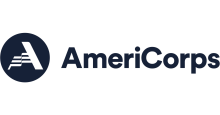What is Survivor Link + Public Health AmeriCorps?
Survivor Link began in the Office of Gender-Based Violence at Arizona State University (ASU) to provide social workers the skills to implement evidence-based domestic violence intervention and support healthy relationships. Through funding from AmeriCorps and the Centers for Disease Control and Prevention, Survivor Link expanded to 14 universities across 11 states with 99 members.
Why participate in Survivor Link + Public Health AmeriCorps?
Survivor Link + Public Health AmeriCorps members will engage in 675 service hours (between August 1 and July 31) to earn a $4,000 stipend and a $2,474.27 Segal Education Award. Service hours include internship/field, training in domestic violence by national experts, and engagement with a faculty mentor. This is an excellent opportunity to participate in National service, earn money to engage in internship hours, and connect with people across the U.S. who share an interest in building healthy and violence-free communities.
Stipend: $4,000 (Survivor Link + Public Health AmeriCorps) + $2474.27 (Segal Education Award) = $6,474.27 (in addition to any other stipend provided by Mandel School)
- For MSW 1st year/generalist year students, your 400 hours of field count towards the 675 hours. You will receive up to 135 hours of training from ASU. The remaining 140 hours will be working with your faculty mentors to provide service to the community through learning projects, community resource mapping, and/or providing training in the community.
- For MSW 2nd year/advanced year/advanced standing students, your 500 hours of field count towards the 675 hours. You will receive up to 135 hours of training from ASU. The remaining 40 hours will be working with your faculty mentors to provide service to the community through learning projects, community resource mapping, or providing training in the community.
- For MNO 1st year/generalist year students, you will complete a total of 675 hours of field work. You will receive up to 135 hours of training from ASU. The remaining 540 hours will be working with the Trauma Center (or a non-profit) and your faculty mentors to provide service to the community through learning projects, community resource mapping, or providing training in the community.
- For MNO 2nd year/advanced year, you will complete a total of 675 hours of field work. You will receive up to 135 hours of training from ASU. The remaining 540 hours will be working with the Trauma Center (or a non-profit) and your faculty mentors to provide service to the community through learning projects, community resource mapping, or providing training in the community.
Who are the faculty mentors at CWRU?
Dr. Megan Holmes and Dr. Laura Voith are the faculty mentors for CWRU.
- Dr. Megan Holmes is a Professor and Co-Director of the Center on Trauma and Adversity. She has nearly 20 years of clinical practice and research experience working in the field of child exposure to domestic violence, which continues to be a serious and highly prevalent social problem that can negatively affect children’s behavioral and mental health outcomes both in the short term and over the life course. The overarching goal of Dr. Holmes’s work is to contribute to the optimal development of children who have been exposed to domestic violence by identifying risk and protective factors that will be translated into interventions. Her current research also focuses on creating community and system responses to trauma that promotes relational health and healing throughout Cleveland and the state of Ohio.
- Dr. Laura Voith is an Associate Professor and faculty affiliate of the Center on Trauma and Adversity. She has worked over the last decade to address violence against women and youth through counseling, agency- and community-based coordination efforts, and research. Her research focuses on the prevention and intervention of violence against women by working with boys and men to uncover the etiology of violence through the lens of trauma and social determinants of health. She leads the Healing, Empowerment, Antiviolence Research Team (HEART) which conducts applied and translational social work research to empower families and communities to live free of violence and shift the tide towards healthy relationships.
How will I improve domestic violence services in my community?
Working closely with colleagues and mentors, Survivor Link members will provide information and training to public health agencies about evidence-based domestic violence interventions, healthy relationships, and domestic violence resources in the community. Students will receive training throughout the academic year and will work closely with a faculty mentor and national experts to ensure that they are prepared to provide this information to their placement sites. Some training will be asynchronous so students can do it on their own time and some will be synchronous so that students build community and learn from one another.
What are the eligibility requirements to serve in AmeriCorps?
AmeriCorps members must be U.S. citizens, nationals, or lawful permanent resident aliens; be at least 17 years of age; have a high school diploma or its equivalent; and satisfy AmeriCorps’ National Service Criminal History Check eligibility requirements.
How do I apply for this opportunity?
If you are interested in becoming a Survivor Link + Public Health AmeriCorps member, complete this form to express your interest.
Dr. Holmes will be reviewing the applications and scheduling brief interviews on a rolling basis until all 12 spots are filled starting May 1. If there is a good fit for the program, we will provide you with the full AmeriCorps application, which will be processed by ASU (i.e., for background check).
Who do I contact if I have more questions?
Dr. Megan Holmes: mxh540@case.edu


